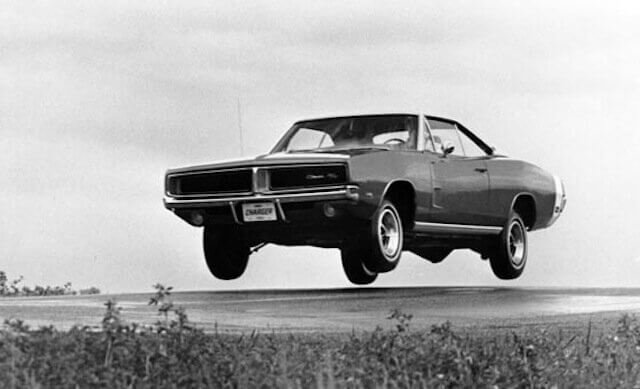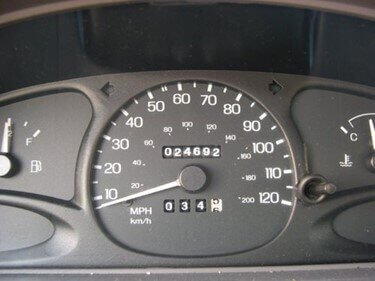You're browsing Craigslist one afternoon when the perfect car comes up for sale. Everything looks great until you realize that the owner doesn't have a title for the car. In that moment, you need be confident that buying a car without a title won’t cause big problems or land you with a stolen car. And while those are valid concerns to have, there are easy ways to avoid problems in this situation.
Buying a car without a title is different from the usual car-buying process. Added security steps protect you against scammers and schemes while ensuring that you can legally title the car in your name later without fear of breaking the law. This article doesn’t cover bonded titles (surety bonds) or other paid means of replacing a lost title, like the services we offer here at Dirt Legal or the state-specific ways to replace a lost title. This article is all about doing it yourself!
How to Buy a Car Without a Title
When buying a car without a title, you should:
Run the VIN number to make sure the car isn’t stolen
Meet in a public place and bring a friend
Get a detailed bill of sale from the seller
File for a replacement title at your local DMV
In addition, buying a car without a title is illegal in many states. Check your state’s laws before proceeding. Always keep this in mind when you intend to replace a lost title after buying the car. It’s usually much easier to ask the person selling the car to replace the lost title instead of taking it on yourself. Since your name is not on the title that was lost, the process is much more complex.
Play it Safe
Stay vigilant: a car without a title is often a clear sign of a scam. This is a great opportunity for someone to sell you a broken car and disappear as quickly as it happened.
First thing’s first: make sure the car isn’t stolen. Before you even meet for the sale, run the VIN number through a VIN checker like ours linked there. What’s a few dollars if it means not accidentally getting involved in a felony? Obtain the VIN by asking the seller to provide it before the sale. If they say no, that’s usually a sign something bad is happening. Before going any further, run the VIN of the car in question to make sure it isn’t stolen and the title status is what you think it is (clean, salvage, etc.).
If the car runs and drives, ask the seller to agree to a pre-purchase inspection by a local mechanic’s shop. You would both meet at the mechanic and receive any news about broken parts or problems with the car, that way there are no secrets about the car itself.
If you meet the seller in person, bring a friend and meet in a public place. We have all heard stories about the dangers of buying things off classifieds sites, and regardless of how uncommon those events are they can still happen to you. Scammers may seem nice on the surface – you might even have a great conversation with them – but their ulterior motives could still be sinister. Speaking of that…
Ask About the Title
A shrewd car buyer will ask the seller where the title went before they meet up. Unfortunately, without a crystal ball handy you won’t know if the seller is telling the truth or blowing smoke where it doesn’t belong. Keep in mind that letting the seller replace the lost or missing title is much easier than trying to do it yourself, especially because in some states selling a car without a title is illegal, so the minute you try to get a title you could encounter legal issues. Check your state’s laws before proceeding.
You need to ask plenty of questions to form an understanding of where the title went. You will use these details when filling out your bill of sale. It’s time to put on your detective hat and monocle; just don’t go giving a 90-year-old lady the fifth degree in a Taco Bell parking lot because “that’s what Dr. Who would do.” Sometimes people just lose stuff.
Once you have your answers, turn right around and…
Forget What the Seller Tells You
Focus on the only thing that matters: the facts. Usually there is only one fact regardless of what the seller says: the title is missing.
Ask yourself whether the story makes sense, especially if the person selling the car isn’t the one whose name was on the title that was lost. In other words, if this car is on its second, third, or even fourth owner without a title, that causes huge problems when you try and get a new title for it. If the facts you have won’t hold up in a court of law to prove that this vehicle legally belongs to you, don’t buy it.
I’ve heard a lot of bad excuses over the years for lost car titles:
I paid off the loan but the bank never sent me a new title
The title is locked in the glovebox but the glovebox handle is broken
My ex broke into my house, stole the title, and took it to Mexico
Regardless of the story, if the seller isn’t the person whose name was on the lost title, that person is committing a criminal offense called title jumping. It’s still possible for you to replace the title in this instance, but buying the car skirts the line of legality.
In my personal experience of buying a car without a title, for every legitimate reason like “it went missing when we moved houses,” some scammer is out there telling a boldface lie. You might get a story like “my cheating ex-wife’s new boyfriend took it back to Mexico with him,” which I actually got about an old Subaru recently, and needless to say I didn’t buy it.
If the facts don’t add up, buying a car without a title is a bad idea.
Problems of Buying a Car Without a Title
Let’s start with the big one: in most states it's illegal to buy, sell, or drive a car without a title. Much like coasting through a rural stop sign at 2:00 AM, Johnny Law usually can’t be bothered to throw you in jail over it, but you shouldn't expect a lot of help from the state when you try to replace that lost title and your name wasn’t on it.
Another issue is time. The process of replacing a lost car title can take anywhere from 8 to 12 weeks depending on the speed of your local DMV. That could be a problem for several reasons:
You can’t get a loan to buy the vehicle
Your insurance company may refuse to insure it
The DMV may refuse to give you license plates
In many states it’s illegal to drive a car without a valid title
When buying a car without a title, one of the biggest problems is that you can’t get a traditional loan to purchase it. Car loans are issued using the car title as collateral. You would need to take out a personal loan to cover this expense, using your good credit or another form of collateral, and that's not always possible or even suggestable.
The Most Important Thing Is to Make a Bill of Sale
The most critical thing is that you obtain an ironclad bill of sale. As we’ve discussed before, a bill of sale is not a foolproof document. In a legal situation it can go a long way to helping you prove your story, but it doesn’t carry the legal strength of a car title regardless of what it says on it. Still, when buying a car without a title it’s very important that the bill of sale spells out everything, including:
The VIN of the car in question
Where the title is believed to be
Who last possessed the title
Names of any owners since the title was lost
This will be your best bet at satisfying the DMV and proving legal ownership of the car, but even that does not guarantee success.
Additional Details to Include on a Bill of Sale
The minimum information for your bill of sale includes the date, time, and location of the sale, as well as the sale price and the VIN number of the vehicle. When buying a car without a title, you'll want to include as many details as possible about why the title is missing and who had it last. If that's not the person you're buying the car from, include any owners not on record. During the sale, have the seller provide an address and phone number should you need to contact them in the future. Match this information to the seller’s photo ID, take a photo of their ID, and have them sign and date the bill of sale.
While it doesn’t replace a car title, the goal of a bill of sale is to create a legal document which, if necessary, could help prove your rightful ownership of the car in a court of law.
Why is this so important? Because scammers are ruthless.
This All Seems Like a Bit Much. Why Can’t I Just Buy the Car? What Could a Scammer Do?
You might think all these safety measures are a bit extreme. I mean, most people are inherently good, right? Still, it's best to protect yourself in case you come across a scammer. Scammers will stop at nothing to get something for free.
When buying a car without a title, one scam tactic is for the seller to claim that you stole their car. The title was never lost and the moment you drive away in the car, they call the police and sue you for damages that they claim you caused. As crazy as it sounds, in a court of law it boils down to your word against theirs. Even with a strong bill of sale, that could turn into a lengthy legal battle nobody wants to fight.
This reminds me of the time when one of our staff members got scammed after buying a car without a title, but instead of claiming the car was stolen, the seller resorted to straight-up blackmail. He replaced the lost title and held it for ransom, asking for more money after the sale had already been completed. That seller came off as a good person until the exact moment he didn’t.
Capture Proof of the Sale
One of our favorite tricks is to record the sale on video. In the modern age of video creation, it’s easy to justify having a camera out and filming while buying a car. Tell them you’re recording it to show your friends later. Or if you’re not comfortable with holding a camera, leave a dash-mounted camera running in the car that you arrive in. Another trick is to take photos of the vehicle at the location of the sale, preferably getting the seller in the photos. Follow all laws, rules, and regulations including obtaining permission when necessary.
This makes it difficult for the seller to claim anything outrageous, like “they stole my car” or “they never paid me.”
Is it Possible to Buy a Car Without a Title?
Yes! It just requires a little more caution than the usual car-buying experience. Before doing anything else, check your state’s laws to make sure buying a car without a title is legal in your state.
It’s very important to create a strong bill of sale. Plan on not having the title in your hand for several weeks or months. Above all else, remember that selling a car without a title is often a dead giveaway that something is amiss with the title history or the car itself, so be sure to run the VIN before the sale takes place. And if the seller won’t provide the VIN upfront, well, there’s your sign.
Dirt Legal’s in-house title specialists are well versed on title fraud. In addition to quick VIN Checks and detailed Vehicle History Reports, we can get you a new title and fresh license plates for your car and save you all the hassle and legwork of the DMV. Our process is quick, easy, and transparent. Buy now or bookmark for later:
We are not attorneys. This article is not legal advice. Cover image source




















The act of transferring a car with an open title, some states classify title jumping as a felony.